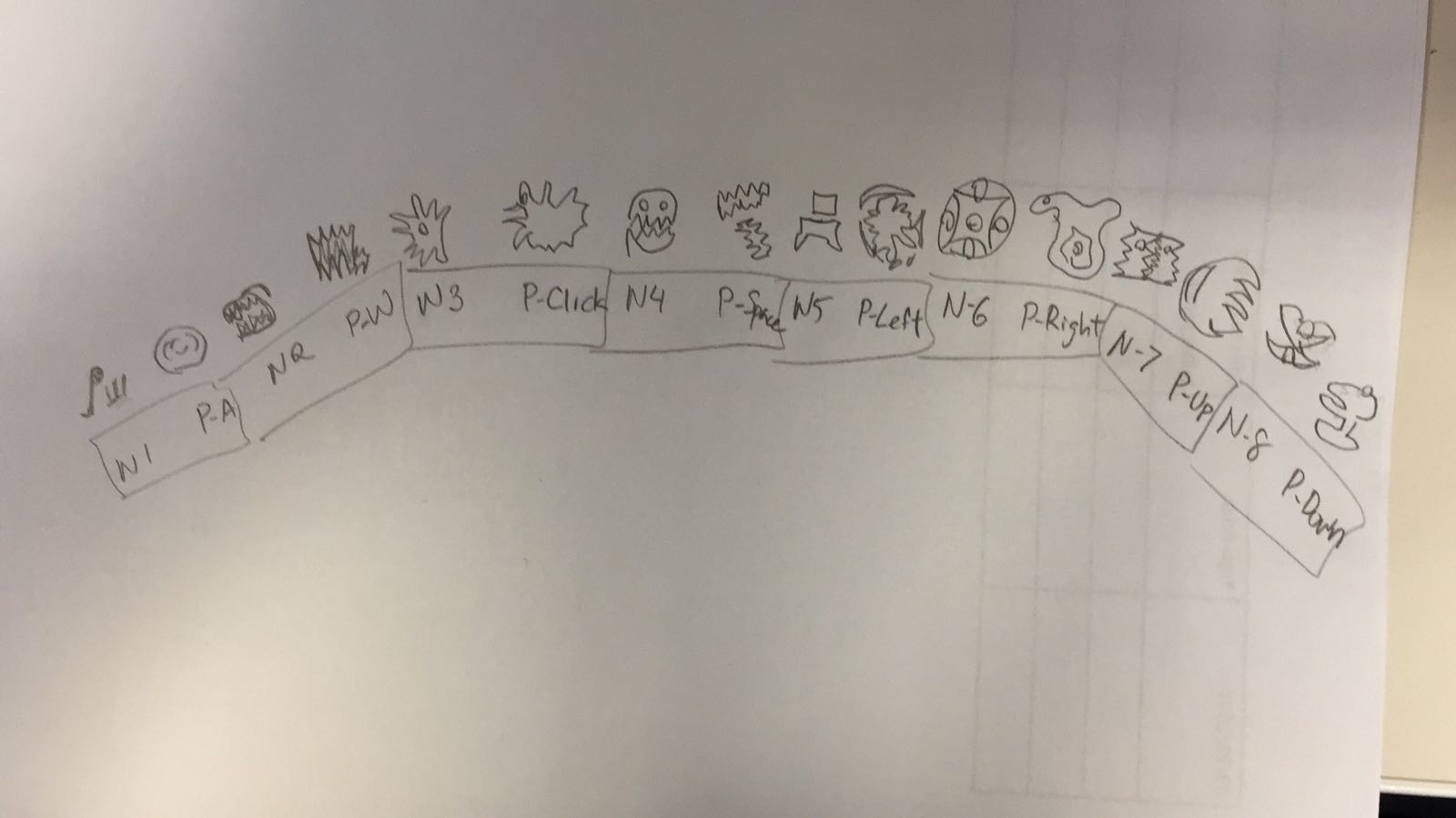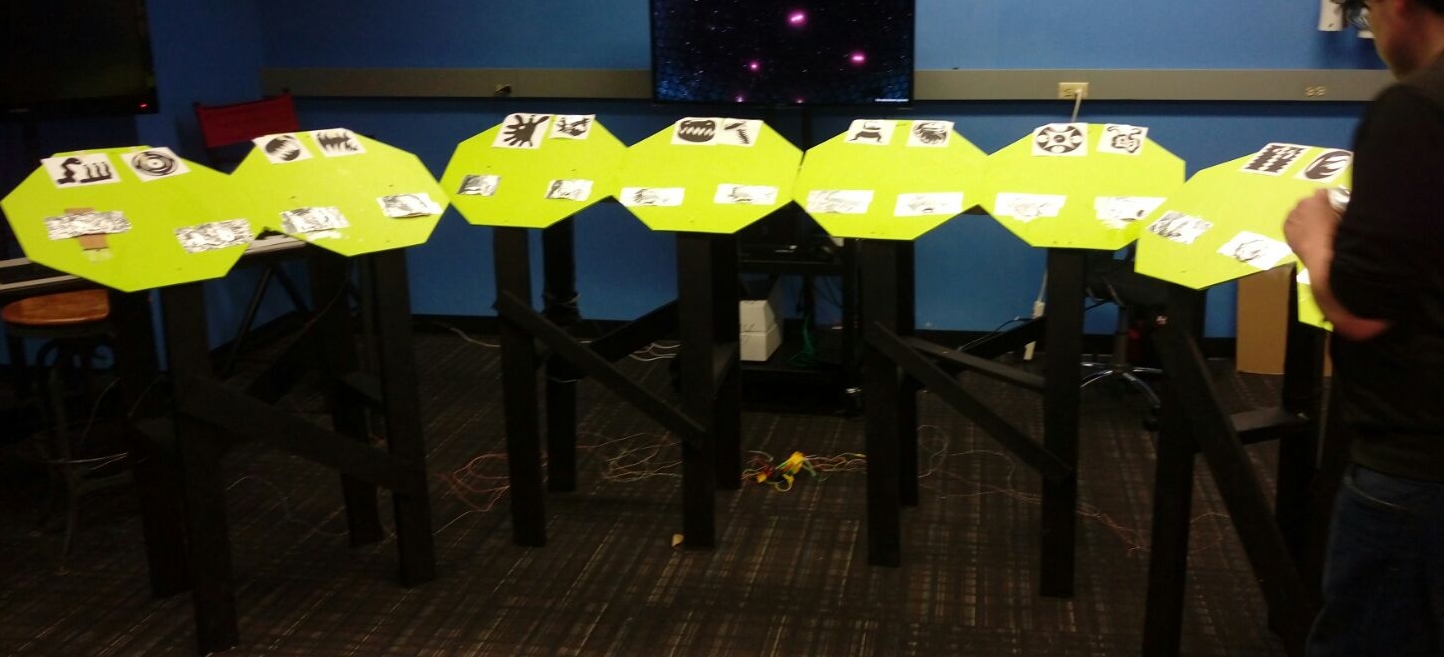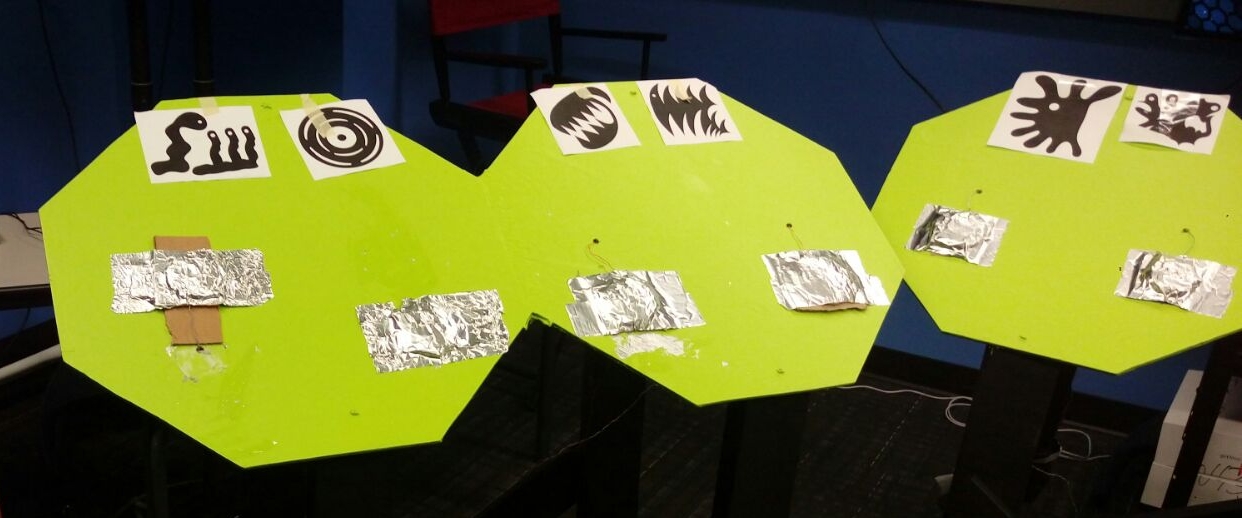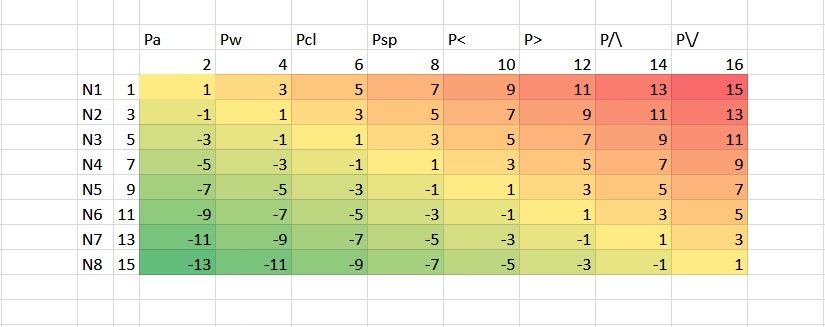This idea came to me in part while developing my ETC pitch project: Space Pirates. We are making an augmented reality board game featuring - you guessed - pirates in space. When thinking about how the game should play, I defaulted to assuming we would have some kind of victory point scheme like many board games these days. The player with the most points at the end of the game wins! But I hate that. I hate victory points. You spend all this time immersed in a world, then you are ripped out of it when everyone tallies scores to find out the winner. That's the great part about Ameritrash. You win Monopoly or Risk when you're the last one standing, not when you get the most "points". Player elimination sucks too though. You don't want your friends just sitting by themselves while you and another player fight over Asia. That's the great part about Eurogames; everyone gets to play and has a shot at winning through to the end! But in many cases Eurogames have to resort to victory point scoring to determine a winner.
I also had the question of what these Factions should look and feel like. I'm designing a new universe for this game to take place in, so I need to decide what the world is like, what kind of people are in it, how magical or technically advanced it is, and who the players get to be. I know that these factions should all feel different, and ideally play differently to expand the appeal of the game. This Asymmetry in playable factions is difficult to design, but allows for more novelty in playing the game. "Next time I want to try playing as the Florbians instead of the Humans!" Furthermore, I think it would be really cool to incorporate story into the game. Most board games don't get the opportunity to show a lot of lore or backstory. Background information is mainly used to inform design choices behind the scenes and serve as the basis for some flavor text. But I'm not just making a board game, I'm making an AR board game. So what if we could add some compelling story on top of our fun gameplay?
And so what does that mean? I want to keep everyone involved throughout the game like a Eurogame, but I also want a pure, absolute victory devoid of victory points like an Ameritrash game. I want asymmetric power balance between factions, and there should be an intricate story. Let’s dive in!
Each player gets a different faction, but each of these factions needs to be doing more than just getting gold or blowing up an enemy spaceship. Each faction needs an Objective. These objectives could be anything we see factions doing in Sci-Fi movies or hear about in pirate stories. Find the Fountain of Youth, develop a vaccine for a space flu, destroy a Death Star, meet your god/maker, invent a new technology, get accepted into a galactic organization, find El Dorado, earn your freedom from space prison, colonize a planet, or even save a princess! But we also get access to all the objectives of the villainous factions! We can build a Death Star ourselves to blow up a planet, create a portal to the demon realm, awaken an ancient Space Monster, freeze a planet, terraform a planet for your own population, or cleanse a solar system of alien life forms. The selection of factions along with specific overarching objectives will fill the universe with life and help define the types of stories that take place there.
It’s no fun if we can all just separate and do our own thing, so there needs to be conflict between the players. Since everyone is trying to accomplish their own objectives, they need to Intersect. For example, if my space pirates are trying to find the galactic Fountain of Youth, and another player is trying to break someone out of a space prison, we need two things. Incremental actions we can each take over the course of the game to advance our specific goals at the expense of the other player, and a reason why the achievement of our ultimate objectives are exclusive to one another. That is to say, why is it that finding the Fountain of Youth would make me win and you lose? Couldn’t you just break the character out of prison later? Well, not if the prisoner is a naturalist who was locked up for trying to destroy the Fountain of Youth, and will ultimately succeed if he was to escape! This is a rather silly example, but ideally, the objectives would change to match the factions playing, so that there is always a story for the ensuing conflict. In this way, the objectives need to be Dynamic. Since the game will take place in part over phones or tablets, we can dynamically generate the objectives based on the factions playing such that there is always an interesting mix of conflicts between the players. Maybe the space criminals are always trying to break their pal out of prison, but we change who this character is based on the opposing player’s choice of faction.
When we think about the actual gameplay and how the players progress, they can’t just ‘build a Death Star’ or ‘end galactic hunger.’ We also need to dynamically generate incremental mini objectives that offer each player an opportunity to advance their long term objectives in interesting ways. Taking the above example, say we present the players one of these incremental objectives on their phones. There’s a mapmaker on Phobos, and the first captain to bring him 100 Galactic Doubloons will get a piece of the map they seek. For the Fountain of Youth player, maybe this shows up as a map to the right system containing the fountain. For the space prison escape player it might be a layout of the prison itself. Each of these players then competes to get the map from the mapmaker. The first person to win this objective then advances towards completing their main objective.
Then what happens to the player who failed their first mini objective? If I never got the map to the Fountain of Youth from the mapmaker, does that mean I can’t win? No, that wouldn’t be any fun, and that’s not what we do here. Under the hood, we can just require the players to complete at least 3 mini objectives to accomplish their main objective, so the specific mini objectives achieved wouldn’t necessarily matter. “But Alan, wouldn’t that compromise the story? I mean, if you don’t have the map how would you ever find the Fountain of Youth?” That’s a great question! It looks like we also need these objectives to be Contingent, that is, for every failed mini objective, there must exist an alternative mini objective that also intersects with the next opposing mini objective that can plausibly start your quest. Let us again take the previous example. Say you were able to get your Galactic Doubloons to the mapmaker first and received the prison schematics! The next objective might go something like this: there’s a space freighter passing through the Epsilon 3 quadrant, and on board is a master slicer who the player needs to get through the prison security system. Rendezvous with that vessel and get him on your crew! For me, again looking for the Fountain of Youth, perhaps I get a prompt that points me to the same freighter, but the master slicer can hack into any map and would be able to guide us to the right system. This way, the second objective in one one player’s progression intersects with the first objective in another.
The next big step is to apply these principles to a group of four players. With four players, you can have two primary stakeholders, then provide opportunities for the other players to take sides. You can also have a four-way mini objective that directly advance each player’s main objective simultaneously. The principles are all still valid, they just become much more complex. Thanks for sticking with me through this all! I’ll keep you posted!









